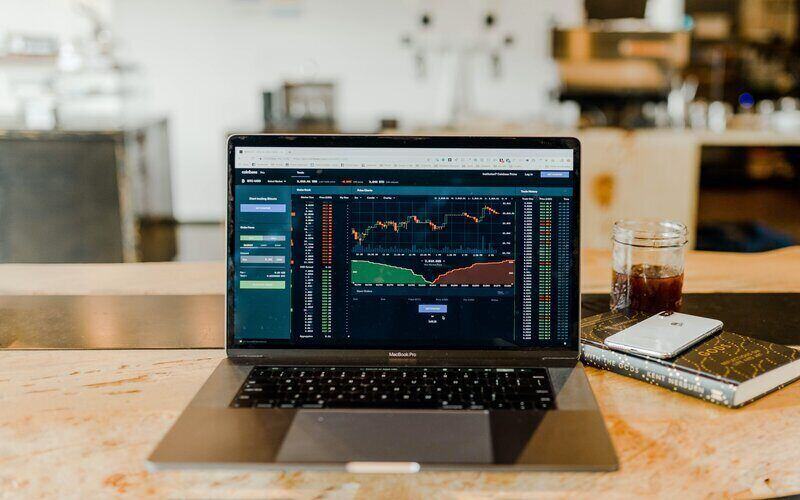You could scroll endlessly on an insipid ABC infographic-article bashing the Stage 3 tax cuts, but not too much has been mentioned about the need for income tax reform more broadly.
The 'punter' has been endlessly bashed over the past few years.
They got told to stop spending after lockdown to cool inflation, never mind the $300 billion in government bonds written and $188 billion lent at near 0% for big banks.
A mortgage broker recently criticised borrowers for churning cashback deals, completely disregarding the distorted market that made cashback deals in-vogue in the first place.
And now they are getting bashed for wanting less of their paycheque going to the taxman, funding ballooning interest on government debt, which is more costly than funding JobSeeker.
So, let's talk about some income tax reform.
Growing reliance on income tax to fuel government spending
Despite Covid lockdowns and generally slowed productivity through the year, taxation revenue for 21-22 was $683 billion - 15.2% higher than the previous financial year.
For the 2021-22 financial year - the most recent data available - taxation revenue across all levels of government as a percentage of GDP was 29.6%.
This was a 1.1 percentage point increase on the previous financial year, and 2.6 percentage points higher than in 2012-13.
With an unexpected budget surplus due to tax receipts and royalties from higher commodity prices, and flatlining GDP growth, this could boom further this financial year.
For personal income taxes, Australia is more reliant on them for revenue than most other countries in the OECD.
It makes up 11.45% of GDP, higher than the OECD average 8.31% as of 2020.
For 2019, OECD figures revealed personal taxes make up 42% of total tax collected by Australia's federal and state governments, the second highest behind Denmark.
In 2010 the Henry Tax Review said Australia relies too much on personal income for government revenue, rather than passive things like land banking and consumption i.e. more GST.
And do you think anything was done about it? Not a chance.
Inflation: taxation by stealth
The government doesn't want you to know about it, but strong wages growth leaves them better off through higher nominal income tax collection as people move into higher tax brackets.
They can collect more tax revenue and no one bats an eye.
If someone was earning $119,000 and received a 3.7% pay rise in-line with the latest wages growth data, they would be pushed into the 37c tax bracket.
About $3,403 would then be taxed at 37%, resulting in an extra $1,259.11 for the government.
However, the catch-22 now is that inflation is high at 7.0%, meaning real wages fell by 3.3%, yet the government collects more tax.
This is called bracket creep, and AMP chief economist Dr Shane Oliver called it taxation by stealth.
"I think we have a major problem in Australia," Dr Oliver told the Savings Tip Jar podcast.
"The basic problem is that it's a stealth tax increase that we have these tax brackets beyond which you pay more, your marginal tax rate goes up.
"The top tax bracket of $180,000 was last changed way back in 2008. But you've got more people tripping over the line into that tax bracket that was never meant for them.
"In a world of very low inflation, low wages growth, it's not an issue. But in a world of higher inflation and high wage growth, it will be an issue."
The solution? Tax bracket indexation
In the 1970s, the Fraser Government indexed personal income tax brackets to the rate of inflation. So if a threshold kicked in at $50,000 and the rate of inflation was 5%, the threshold would be $52,500 the next financial year.
That was back when people were reeling from the incredibly high inflation of the early 1970s; it peaked at an annualised headline rate of 17.7% in March 1975.
As mentioned earlier, this would avoid bracket creep - it would also encourage governments to do their part to rein-in inflation through more prudential spending.
There's a surplus this financial year, but it will balloon out to a $13.9 billion deficit for 2023-24.
"I think if we cancel Stage 3 altogether, it does run the risk of problems with bracket creep - Australians finding themselves in ever higher tax brackets that were never meant for them. I think that's unfair," Dr Oliver said.
"We already have quite a progressive tax system and progressivity will remain in the system. We have to give that bracket creep back to people rather than taking money away by stealth.
"If governments want to raise more revenue, fair enough, go to the people and adjust the tax rates up or adjust the tax brackets. But bracket creep is a sleight of hand."
However, there's also that pesky election cycle to be wary of - governments don't want to be seen to increase taxes.
Let's address the bottom end
An Australian National University Crawford School research paper written in March 2023 said that the Stage 3 tax cuts merely remove the bracket creep made over the past few years.
However it isn't all good news.
"Overall, the three stages of the tax cuts maintain personal income tax at around half of total Commonwealth tax revenue, but involve some redistribution of the tax burden from higher to lower income earners," author Paul Tilley noted.
So why not increase the tax free threshold? It's been steady for 10 years.
I addressed this issue in April 2022, and spoke to Mark Chapman, the director of tax communications at H&R Block.
"Any increase would benefit low-income earners who are suffering more than any other group from the current cost of living crisis. In short, more people would be taken out of the tax net completely – exactly how many would depend on what it was increased to," Mr Chapman said in April 2022.
If the tax-free threshold of $18,200 was indexed to headline inflation over the past 10 years, it would be $23,324 today, based on December quarter annualised inflation.
Make up the shortfall in other areas: Deloitte's recommendations
Big-four accounting firm Deloitte doesn't expect to see real wages growth until the second half of 2024 - not very deloittful.
In a May 2023 Budget Monitor paper, Deloitte Access Economics Partner and report lead author Stephen Smith recommended the government go harder on income tax reform to spur-on productivity, which has slumped post-Covid.
Rather than taxing active workers, Mr Smith recommended placing more onus on passive taxes to do the heavy lifting - in-line with OECD recommendations.
The Deloitte Access Economics team had three main recommendations:
1. Stage 3.1: Even less personal income tax
While the budget needs more revenue, not every tax should increase and the contribution that personal income tax makes to the revenue base should be contained (with more efficient taxes filling the void).
The current tax-free threshold of $18,200 should be increased, while flatter personal income tax thresholds would help to deal with bracket creep.
2. A broader-based GST with a higher rate
As a relatively efficient tax, the GST should raise a greater proportion of Australia’s tax revenue through an increase in the rate of the GST to 15% and a broadening of the base.
This proposal would include appropriate compensation for low income households and would see the Commonwealth retain the additional revenue raised.
3. A less generous capital gains tax discount
The capital gains tax discount over-compensates for inflation at the current rate.
Deloitte Access Economics has modelled a reduction in the discount from 50% to 33.33%, which would give a better approximation of the real capital gain of an asset over longer holding periods.
Photo by jcomp on Freepik


 Denise Raward
Denise Raward
 Harry O'Sullivan
Harry O'Sullivan

 Harrison Astbury
Harrison Astbury
 Brooke Cooper
Brooke Cooper

